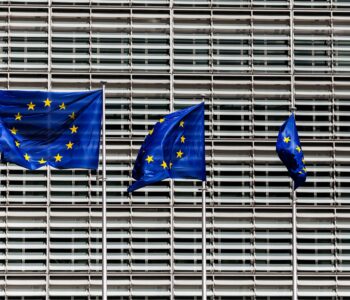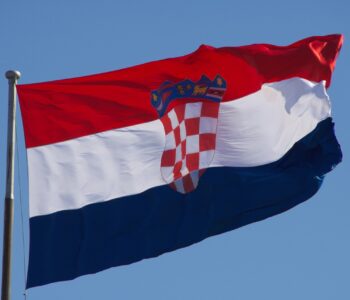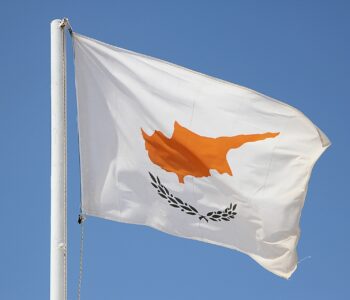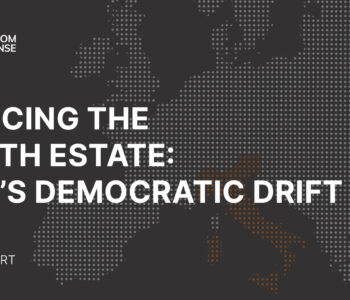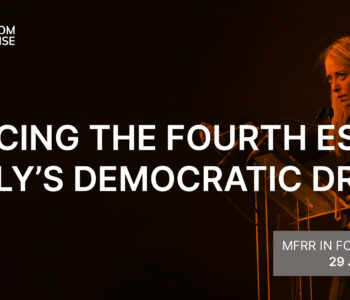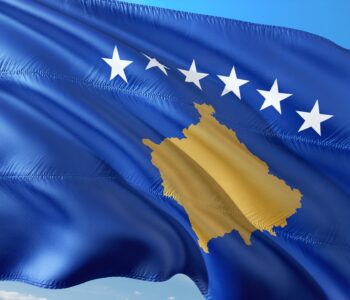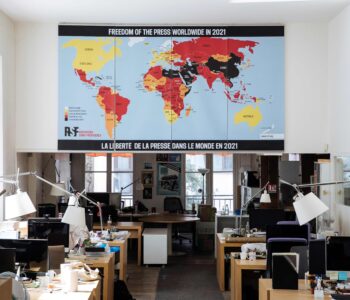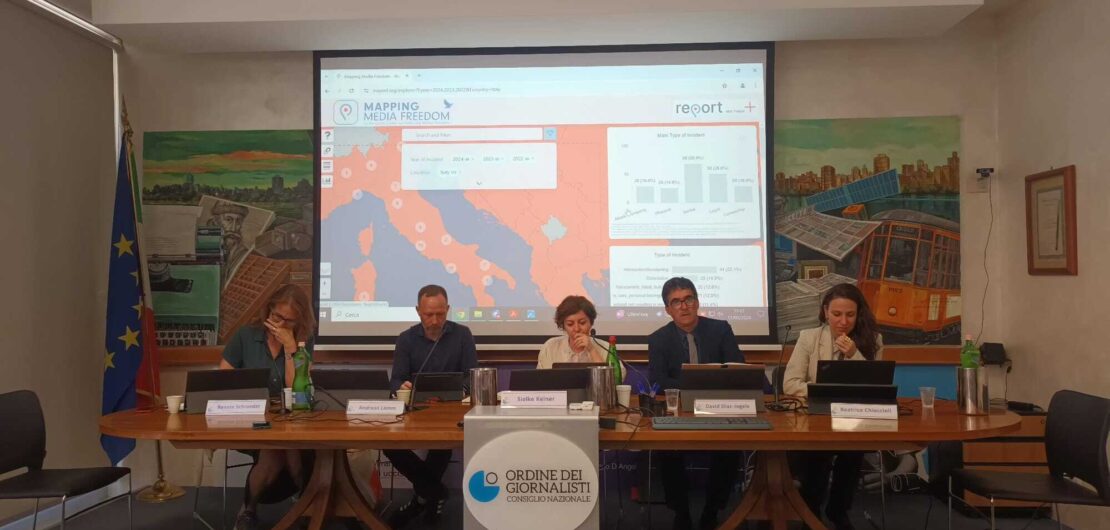 Library
Library
Italy: MFRR calls for constructive dialogue on media freedom…
Italy: MFRR calls for constructive dialogue on media freedom recommendations
The Media Freedom Rapid Response (MFRR) partners stand in solidarity with journalists in Italy and call for an immediate end to all forms of attacks against them. We encourage all key stakeholders, including institutional ones, to join forces in enhancing the protection of journalists and media professionals.
Available in Italian here.
The MFRR is a network of six media freedom organisations committed to working towards a resilient and free media landscape, including through conducting fact-finding and advocacy missions to assess the situation on the ground.
Amidst a documented increase in attacks affecting the press and media freedom landscape in Italy recorded by the Media Freedom Rapid Response (MFRR) on its Mapping Media Freedom platform, the MFRR consortium organised an advocacy mission to Rome on 16-17 May 2024. The mission aimed to address concerns about the state of media freedom with Italian policymakers, review recent developments and formulate recommendations that align with EU and international standards.
Following a transparent methodology that applies to all MFRR missions, the MFRR delegation requested meetings with representatives of several public bodies, journalists from various media outlets, journalists’ trade unions, and civil society organisations in Italy.
The consortium always recognises the value of engaging with representatives of the ruling government and opening a dialogue with them to discuss the state of media freedom. This is a standard practice that the MFRR adopts in all country missions across Europe. Despite numerous meeting requests being sent to a number of representatives of the ruling coalition, all of them were either declined or unanswered, which did not allow the MFRR to include their potential input in the mission report published on 29 July.
The MFRR regrets that since the publication of the report, some of the journalists with whom the delegation met have been targeted by verbal abuses discrediting their role and work. Under no circumstances should journalists be stigmatised or denigrated. The MFRR wishes to reiterate that the journalists, as well as all the other stakeholders that the delegation met in Rome, were by no means co-authors of the MFRR mission’s report. The mission and the report were carried out with complete impartiality and independence by the members of the MFRR consortium, free from any political bias.
The MFRR also emphasises that our report and the European Commission’s Report on the Rule of Law are two independent resources. Both studies are based on thorough and quality research, each employing a concrete methodology. Nevertheless, it is essential to differentiate them clearly for greater precision.
Therefore, we call on everyone reporting on this work, including public officials, to refrain from any kind of attack against journalists or media outlets quoted in the report. The MFRR strongly hopes that the report will instead stir an effective debate about its content and recommendations and prompt competent authorities to address the outlined challenges to press and media freedom in the country.
The MFRR will continue to monitor and advocate for press and media freedom in Italy – as it does for all EU Member States and candidate countries – and reiterates its willingness to enter into a constructive dialogue with public officials and representatives of the government to ensure a safe, independent and pluralistic media environment, a cornerstone of a democratic society.
Italia: MFRR chiede un dialogo costruttivo sulle raccomandazioni sulla libertà dei media
Le organizzazioni partner del Media Rapid Response (MFRR) sono solidali con i giornalisti in Italia e chiedono la fine immediata di tutte le forme di attacco contro di loro. Incoraggiamo tutte le parti interessate, comprese quelle istituzionali, a unire le forze per migliorare la tutela dei giornalisti e dei professionisti dei media.
MFRR è una rete di sei organizzazioni per la libertà dei media che si impegnano a lavorare per un panorama mediatico resiliente e libero, anche attraverso lo svolgimento di missioni di advocacy volte a valutare la situazione sul campo.
Di fronte al documentato aumento degli attacchi alla libertà di stampa e dei media in Italia registrato da Media Freedom Rapid Response (MFRR) sulla sua piattaforma Mapping Media Freedom, il consorzio MFRR ha organizzato una missione di advocacy a Roma il 16-17 maggio 2024. La missione mirava ad affrontare le preoccupazioni sullo stato della libertà dei media con i decisori politici italiani, esaminare gli sviluppi recenti e formulare raccomandazioni in linea con gli standard UE e internazionali.
Seguendo una metodologia trasparente che si applica a tutte le missioni MFRR, la delegazione ha richiesto incontri con rappresentanti di diversi enti pubblici, giornalisti di vari organi di stampa, sindacati dei giornalisti e organizzazioni della società civile in Italia.
Il consorzio riconosce sempre il valore del confronto con i rappresentanti del governo in carica e dell’apertura di un dialogo con loro per discutere dello stato della libertà dei media. Questa è una pratica standard che MFRR adotta in tutte le missioni nei paesi europei. Nonostante le numerose richieste di incontro inviate a diversi rappresentanti della coalizioneal governo, tutte sono state declinate o non hanno ricevuto risposta, il che non ha consentito a MFRR di includere il loro potenziale contributo nel rapporto di fine missione pubblicato il 29 luglio.
MFRR si rammarica che, dalla pubblicazione del rapporto, alcuni giornalisti incontrati dalla delegazione siano stati presi di mira da aggressioni verbali che hanno screditato il loro ruolo e il loro lavoro. In nessun caso i giornalisti devono essere stigmatizzati o denigrati. MFRR desidera ribadire che i giornalisti, così come tutti gli altri stakeholder che la delegazione ha incontrato a Roma, non sono stati in alcun modo co-autori del rapporto della missione MFRR. La missione e il rapporto sono stati condotti con totale imparzialità e indipendenza dai membri del consorzio, liberi da qualsiasi pregiudizio politico.
MFRR sottolinea inoltre che il nostro rapporto e il rapporto della Commissione europea sullo stato di diritto sono due risorse indipendenti. Entrambi gli studi si basano su ricerche approfondite e di qualità, ciascuna delle quali impiega una metodologia precisa. Tuttavia, è essenziale differenziarli chiaramente per una maggiore precisione.
Pertanto, invitiamo tutti coloro che riferiscono su questo lavoro, compresi i funzionari pubblici, ad astenersi da qualsiasi tipo di attacco contro i giornalisti o gli organi di informazione citati nel rapporto. MFRR spera vivamente che il rapporto stimoli invece un dibattito efficace sul suo contenuto e sulle raccomandazioni volte a migliorare la libertà di stampa e dei media nel paese.
MFRR continuerà a monitorare e sostenere la libertà di stampa e dei media in Italia, come in tutti gli Stati membri dell’UE e i paesi candidati, e ribadisce la volontà di avviare un dialogo costruttivo con funzionari pubblici e rappresentanti del governo per garantire un ambiente mediatico sicuro, indipendente e pluralistico, pietra angolare di ogni società democratica.
Firmato:
OBC Transeuropa (OBCT)
The European Federation of Journalists (EFJ)
ARTICLE 19 Europe
The European Centre for Press and Media Freedom (ECPMF)
Free Press Unlimited (FPU)
International Press Institute (IPI)
This statement was coordinated by the Media Freedom Rapid Response (MFRR), a Europe-wide mechanism which tracks, monitors and responds to violations of press and media freedom in EU Member States and candidate countries.

